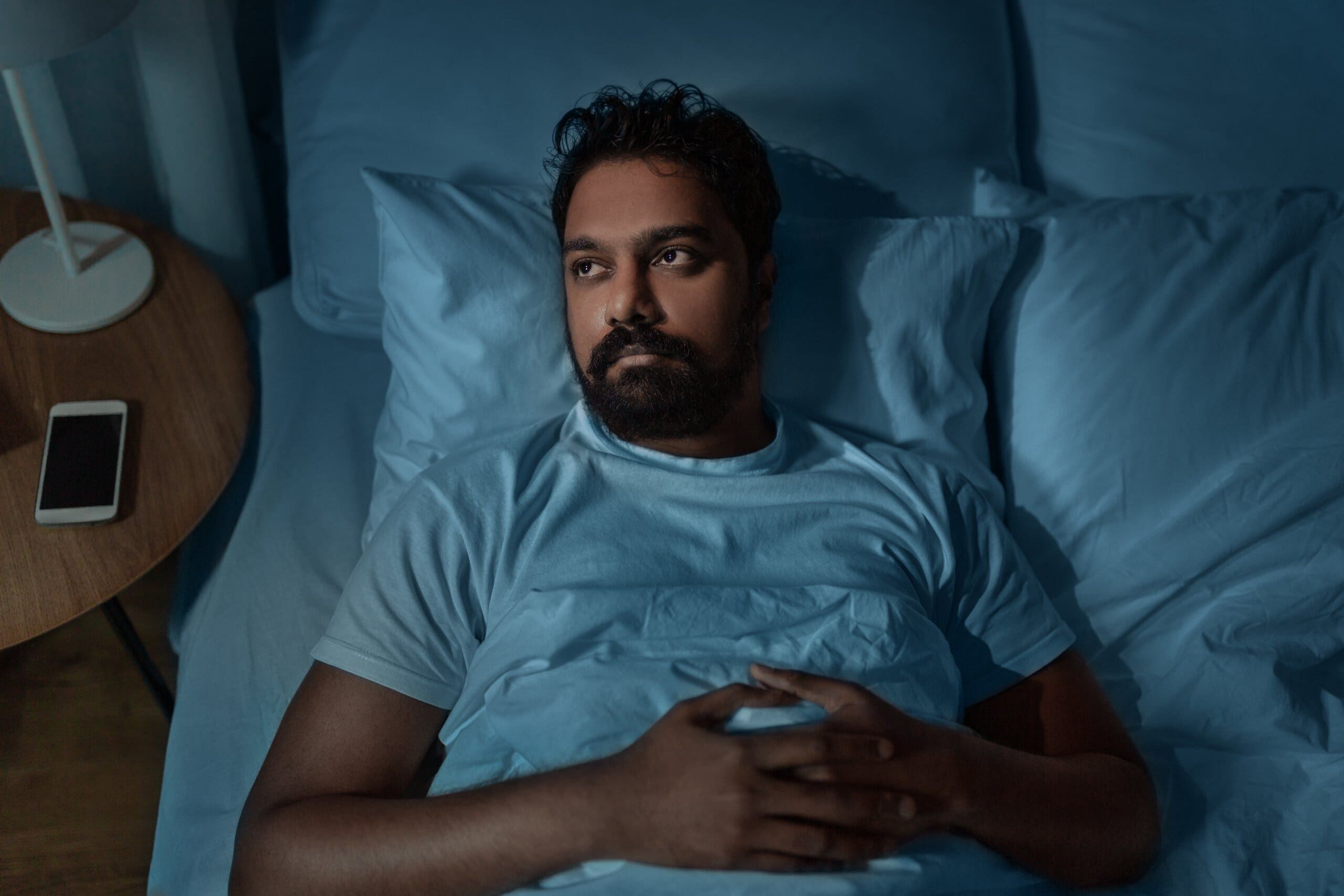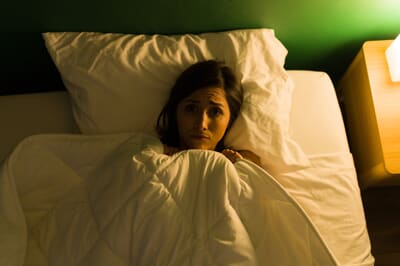At this point in our lives, we’re probably all aware of just how important good sleep is for maintaining a balanced and healthy lifestyle. But it’s also true that, sometimes, a bad night’s sleep is inevitable.
Whether it’s due to a sudden bout of restlessness, stress relating to a big event the following day, or the late-night cries of your newborn child, there are all manner of reasons why you might have one random night every so often where you don’t quite get those recommended 40-winks.
Of course, one or two nights of bad sleep isn’t the worst thing in the world and comes with no real long-term effects outside of needing a little extra bit of sleep in the days after. But what would happen if you chronically missed out on sleep? How long can you go without sleep before it starts becoming a serious problem?
Find all about the serious impact of chronic sleep deprivation in our guide below.

How long can you survive without sleep?
Needless to say, we’re sure that you’re probably not surprised to learn that the average human cannot survive that long without needing to sleep. In fact, unless you’re under extreme duress and constantly exposed to loud external stimuli, your body will all but force you to ‘shut down’ and rest after only a day or so of being awake.
However, with that being said, no one is actually quite sure how many days you can go without sleep, mainly because modern-day scientific ruling considers carrying out such experiments as highly unethical and dangerous to the health and well-being of participants.
Generally speaking, though, most sleep scientists agree that you can survive without sleep for at least 3 days before the effects of sleep deprivation start to seriously impact your body and mind’s functionality.
What is the longest someone has ever gone without sleep?
While no one has ever substantially proven how long you can survive without sleep, at least as far as we’re aware, that’s not to say that people have not attempted to go out of their way to set the record for the longest length of time gone before needing to sleep.
As a result, the current world record for the longest amount of time without sleeping goes to Randy Gardener, an American student who, in 1963/64, set the world record at 11 days, or 264 hours.
But far from being something to celebrate, this record proved just how important sleep is in order for us to function properly. Because as we’ll see below, even after just a few days, the impacts of not getting enough sleep are incredibly serious.

How does lack of sleep affect you physically?
First things first, let’s look at how a lack of sleep can affect your body on a physical level. And if we’re being honest, the results are rather shocking.
To start with, numerous long-term studies have shown that even a single night of no sleep is enough to seriously heighten stress levels. This is through the production of cortisol and adrenaline (which are hormones designed to keep the body alert), as well as causing physical fatigue, drowsiness, and even bodily tremors in a small number of cases.
However, these effects get far worse as time goes on, and after just a day and a half of no sleep, hormonal imbalances will start to occur, your metabolism will slow, and your appetite will diminish, not to mention your body experiencing random temperature fluctuations as time goes on.
From here on in, once you pass the two-day mark, your body will essentially start forcing you to go to sleep through microsleep episodes and dramatically increasing the desire for you to sleep in general.
However, if you decide to stay awake after this point, then you’ll likely experience the following symptoms on a consistent level:
- Immune system dysfunctionality
- Inflammatory problems
- Increase blood-pressure
- Blurred vision and eyesight problems
- Continual nausea
- Speech problems
- The potential inability to form a consistent sleep pattern in the future
In other words, going longer than three days without sleep is ill-advised for the health of your body to say the least. But the impact of sleep deprivation on your mental health is far more concerning.
How does lack of sleep affect mental health?
When it comes to how lack of sleep affects your mental health, the impact and symptoms are immediate and serious. In fact, after as little as a single day without sleep, your mind will already start to experience what’s known as cognitive impairment, leading to poor decision-making and an inability to properly remember things.
However, it’s after a day and a half to two days were things start to get really serious. From this point on, the mental exhaustion your mind is experiencing will lead to irritability and consistent mood swings as proper emotional regulation becomes difficult. Not only that but your reaction time will decrease, and your motor skills will diminish.
From here, any further time spent without sleep can lead to serious and potentially permanent mental damage, with delusional behaviour and hallucinations all but guaranteed as your mind loses touch with reality, causing the following symptoms:
- An inability to concentrate
- A breakdown of cognitive functionality
- Increased levels paranoia
- Psychotic breaks
- Psychosis

What are the long-term impacts of sleep deprivation?
So, we’ve looked at what a lack of sleep can do to your body if you were to stay awake for long and unbroken periods of time, but what about continual sleep deprivation – the kind where you consistently miss one to three hours of sleep each and every night?
Well, even though it’s not as serious as missing out on sleep altogether, this sort of chronic sleep deprivation will start to have a considerable impact after 3 months or so as exhaustion and burnout start to take effect, causing the following physical and mental issues for your body and mind:
- Increased risk of obesity
- Heightened potential to develop diabetes
- Long-term cardiovascular problems
- Potential immune system deficiencies
- Mental health problems and cognitive defects
- A general increased risk of accidents occurring
Needless to say, all of these symptoms can have serious long-lasting impacts on your health, making getting consistent quality sleep absolutely paramount whenever possible.
Is it possible to catch up on sleep deprivation?
By now, it’s probably clear just how horrifying the long-term implications of sleep deprivation are – but is it possible to catch up on sleep deprivation and regain some of those lost hours?
And as it turns out, the answer is yes – it is possible to catch up on this so-called ‘sleep debt’, though only to a certain extent. How much sleep you can catch up on will depend on several factors, such as your age and how many hours you’ve missed to begin with.
If it’s just a few hours for two to three days in a row, then this sort of sleep debt can be resolved by increasing your sleep time by an additional 30-45 minutes for the next week or so. However, if it is more cumulative and long-term, then longer patterns of sleep may be required to make up for such sleep deficiencies.
Above all, if you do want to catch up on your sleep debt, then you should avoid napping during the day and lying in on the weekends. Instead, focus on getting quality sleep rather more in order to establish a consistent sleep routine going forward and avoid sleep deprivation in the future.


Ensure a good night's rest every night
With that last point covered, you should now have a much better idea of how dangerous sleep deprivation can be for your body, and the risks that come with accumulating this sort of sleep debt in the long-term.
Fortunately, by getting consistently good sleep, the odds of you ever experiencing sleep deprivation are incredibly low, especially if you invest in a highly-quality mattress that supports your body, preventing you from being disturbed in the night and ensuring a consistent sleep quality. Quality bedding, such as cooling bedding in the summer, will help you stay sound asleep all night and not end up needing to repay your sleep debt.
Here at MattressNextDay, we have an incredible range of top-quality mattresses, duvets, and pillows from some of the best brands on the market. Set at budget-friendly prices, if you’re looking to replace your old mattress or buy a new one, you should start browsing our range today.
And don’t forget to visit our sleep blog as well if you want more informative articles and guides like this one!






